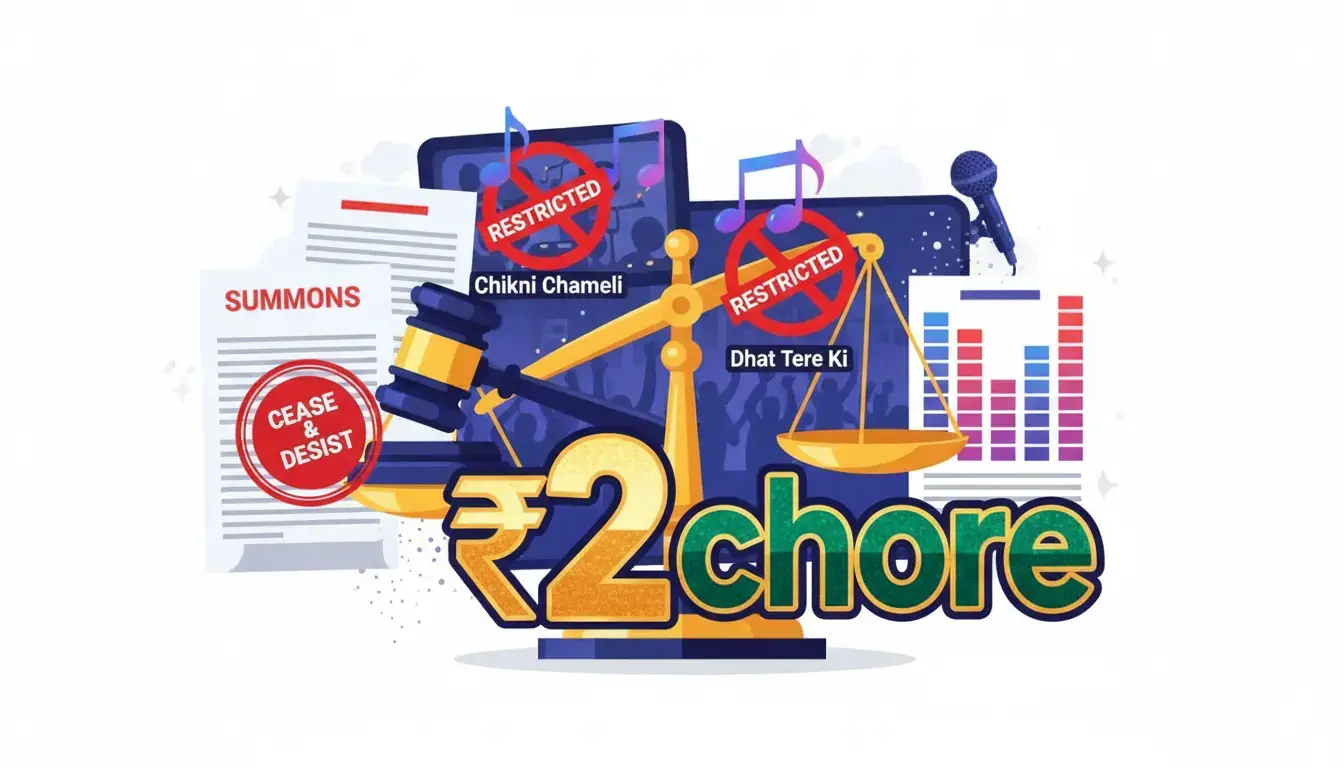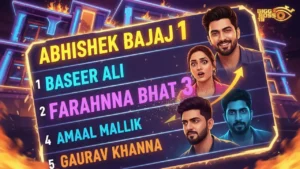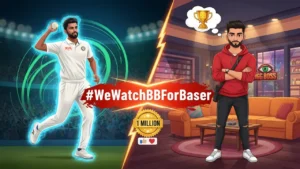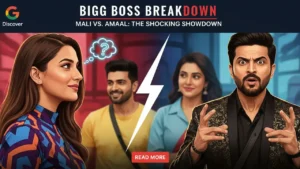A massive legal challenge has hit the popular reality show Bigg Boss 19, threatening its makers with a staggering ₹2 crore lawsuit. The dispute centers on the alleged unauthorized use of two iconic Bollywood songs, “Chikni Chameli” and “Dhat Tere Ki,” during its 11th episode. This high-stakes legal battle highlights the critical importance of intellectual property rights in India’s booming entertainment industry.
What the Data Reveals
The legal action comes from Phonographic Performance Limited (PPL), India’s oldest and most prominent copyright licensing organization. PPL has served a legal notice to Endemol Shine India, the production house behind Bigg Boss 19, demanding not only ₹20 million in damages but also mandatory licensing fees. This move underscores PPL’s commitment to protecting the rights of its members and ensuring fair compensation for music creators.
The core of the dispute involves sound recordings from the films Agneepath and Gori Tere Pyaar Mein. Specifically, the popular tracks “Chikni Chameli” and “Dhat Tere Ki” were reportedly used without obtaining the necessary public performance license. These songs’ public performance rights are exclusively administered by PPL, acting on behalf of Sony Music India, the original licensee.
The legal notice, officially served on September 19, 2025, asserts a clear violation under Section 30 of the Copyright Act 1957, labeling the act as “wilful infringement.” This isn’t just about financial penalties; PPL has also issued a crucial cease-and-desist order, explicitly forbidding any further unauthorized use of their licensed sound recordings by the show’s creators.
While the lawsuit names directors Thomas Gousset, Nicolas Chazarain, and Deepak Dhar of Endemol Shine India, an interesting twist emerges. Some reports suggest that the production house might not bear direct liability. Instead, the responsibility for song selection could potentially fall on Jio Hotstar’s promo team, adding another layer of complexity to this unfolding legal drama.
The Legal Labyrinth
This situation serves as a stark reminder for all content creators about the meticulous process of securing proper licenses for any copyrighted material. The timeline of events is critical: Bigg Boss 19 premiered on August 24, 2025, with the contentious Episode 11 airing just over a week later on September 3. PPL’s legal notice followed on September 19, sparking widespread news coverage by September 25-26. This swift response demonstrates the vigilance of copyright holders in safeguarding their assets.
The ₹2 crore figure isn’t just a number; it reflects the potential revenue loss and the severity of perceived infringement. For a show as high-profile as Bigg Boss, which often features celebrity hosts like Salman Khan, such a legal battle can significantly impact its reputation and financial standing. It also sets a precedent for how seriously copyright laws are enforced within the Indian entertainment sphere.
What This Means for the Future
The ongoing legal tussle highlights the need for rigorous due diligence in music licensing, especially for large-scale productions. It also brings into focus the intricate web of responsibilities between production houses, streaming platforms, and their respective teams. Companies must ensure every piece of content, from background music to promotional clips, adheres strictly to copyright laws to avoid costly litigation and reputational damage.
As the entertainment landscape evolves, understanding and respecting intellectual property rights becomes paramount. This case will likely serve as a cautionary tale, prompting stricter internal protocols for content creation and usage across the industry. It’s a wake-up call for everyone involved to prioritize legal compliance over convenience.
Conclusion
The ₹2 crore lawsuit against Bigg Boss 19 is more than just a legal battle; it’s a testament to the growing enforcement of copyright laws in India. As this intriguing case unfolds, it will undoubtedly shape future practices in music licensing for major productions. What are your thoughts on this high-profile legal challenge? Share your insights and predictions in the comments below!




